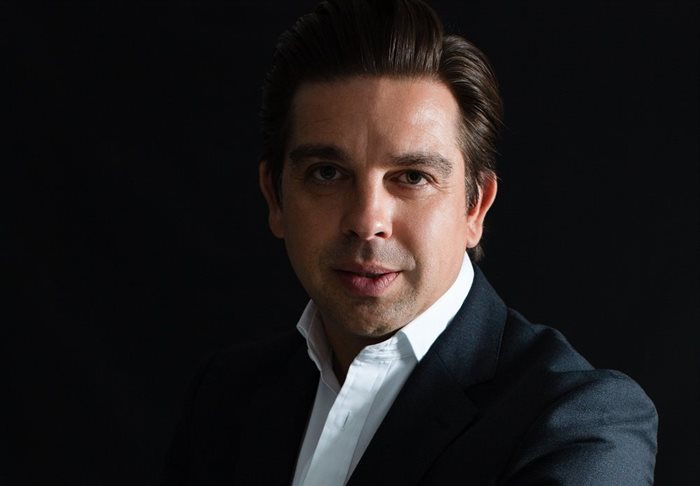
Brendon Williamson, managing director at PayFast and PayGate. Source: Supplied
The e-commerce veteran has spent roughly 20 years working in the rapidly evolving payments space, with broad experience across sales, marketing, forensics and fraud management.
In his new senior leadership role, he's scouting out opportunities for business growth and for the expansion of PayFast and PayGate’s offerings to make online payments simpler and more seamless for merchants and their customers.
For Williamson, we've only just scratched the surface of payments innovation and the meaningful impact it can have on our lives. Here, he shares his leadership approach and speaks to the dynamic potential of digital payments and what's needed to accelerate local e-commerce.
Brendon, congrats on your appointment as PayFast and PayGate MD. What does this promotion mean to you?
I see this promotion as both a personal milestone in terms of my career, and a reassurance that I’ve made the right choices, when it comes to the people that I’ve worked with along the way. Career-wise, this is something I’ve always wanted to achieve and have worked really hard towards. I’ve run my own businesses in the past – but the difference this time is the journey I’ve walked with PayGate, PayFast and the DPO Group.
If I look around, many of the people who are still here have been by my side since the beginning, and I think that’s the key lesson here. No matter what, be cognisant and appreciative of the people next to you – because ultimately, if you fall down, you want the person next to you to be the one who picks you up.
The support and encouragement I’ve received from those I’ve worked closely with over the past 10 years, has been crucial. That I’ve achieved this goal means I’m surrounded by all the right people.
What’s at the top of your to-do list in your new role?
Over the past few years, we’ve been through a significant amount of change, with DPO Group acquiring a number of companies – including PayFast and PayGate, among others.
My main focus is to consolidate and integrate all of these companies, and the people behind them. By creating a unified brand that everyone can associate with, we can solidify a single vision to take us forward as a business. I think it’s important that people know where they belong, and where they’re going.
What excites you most about working in payments?
I've been in the world of payments for over 20 years now, and things are always changing. In the last two years alone, the industry has evolved significantly – never mind in the last 10. Despite this, we’re still only touching the surface of what is possible. Faster internet speeds, easier access to connectivity, and innovative technology – like wearables, the ability to order groceries via your fridge – are making e-commerce a very exciting space to be in.
In addition to this, payments touch almost every single aspect of our lives, and there is huge potential for online payments to ease some aspects of life and even do good. As an example, e-commerce can elevate an entrepreneur from purely local, in-person sales to a business that operates nationally, by giving them access to a new client base online. It presents an opportunity to grow and do business at a new level.
With the pandemic making e-commerce more commonplace, what do you view as the key challenges that need to be overcome in Africa before we start seeing significant online retail penetration?
During Covid, distribution and manufacturing came to a standstill worldwide. As a result, there are enormous backlogs that are still being felt in South Africa and across the continent. Merchants are operating with limited stock and facing increased shipping and logistics fees due to rising fuel prices. The knock-on effect is that the cost of items goes up, and customers must make a decision about where to spend their money, which isn’t going as far as it did two years ago.
Solving challenges around delivery and logistics in the informal economy is another key aspect of e-commerce growth in Africa. We need to unlock access to non-urban areas and de-centralise delivery if we want to reach more customers via online shopping. While payment gateways don’t play a direct role in distribution, we do enable easier payments within these channels and make it easier to facilities orders.
Anything in particular you're currently reading, watching or listening to for work inspiration?
As an avid reader, I always have five or six books going at once. Right now, the pile of books next to my bed includes:
- Leadershift by John C Maxwell, which outlines the principles of leadership in a changing environment.
- What Happened to You? by Oprah, where she talks about how reflecting on yourself as an individual helps you to better understand other people.
- Man’s Search for Meaning by Victor Frankl, which has to be one of the best books I’ve ever read. In it, Frankl highlights the pure determination of humans to get through life by finding the good in negative situations.
In your opinion, what are the qualities of a great leader?
- A great leader doesn’t use other people’s misfortune for their gain, because somewhere down the line it will catch up to you. You might get to the top, but you’ll be very lonely there.
- A great leader speaks their truth at all costs, because no one can fault you on your truth. If someone doesn’t acknowledge or accept that truth – that’s on them. As long as you can walk away and be at peace about your decisions, then you’ve done the right thing.
- A great leader remembers to look down. It’s always good to look up and see where you’re going, but throughout my career I’ve been a proponent of looking down as a reminder of the path that you’ve taken to get to where you are today. I think it helps you remain grounded and humble. It’s also a good way to reflect on the path that other people have taken to get to the same position as you.
- A great leader puts their heart first. My grandfather always said, "learn to lead with your heart, before you lead with your hands." I would add to this and say, "learn to lead with your heart, then your hands, then your mind" – with your heart representing your humanness, your hands meaning actions and doing the work, and your mind in terms of your thoughts.
What impact do you hope to make in your industry?
I would love to be the person who shifts the payments paradigm. The key impact I’d like to make is focusing on how we use payments to do good, and I’d be happy to be known as the guy who made a big shift in this respect.
Could you leave us with some valuable career advice?
Define who you are not: Everybody talks about defining who you are, but I’ve never done that. Instead, I decided to define who I’m not and what I don’t stand for – and that ultimately led to who I am. I found it a lot easier and more effective to say I’m not the guy who will compromise my morals or step on people to get what I want. My advice for other people is to try this as an exercise.
Treat yourself as a business: While it might sound strange, treating yourself as a business gives you an opportunity to think about what your brand is, and what you want to put out there for people to associate with you and identify you as. If you do that well, you’ll get to a point where you can decide what fits into your business, and what doesn’t.
Don’t take anything for granted: If you step into my office, there’s a reason that you’ve taken the time to speak to me – and you’ll receive my full attention. I treat every single interaction that I have with another person as significant, because if you apply significance to the person that said hello to you yesterday, they might be the person who helps you tomorrow. It’s about being cognisant of the people around you, and the ways in which you can help each other.













































